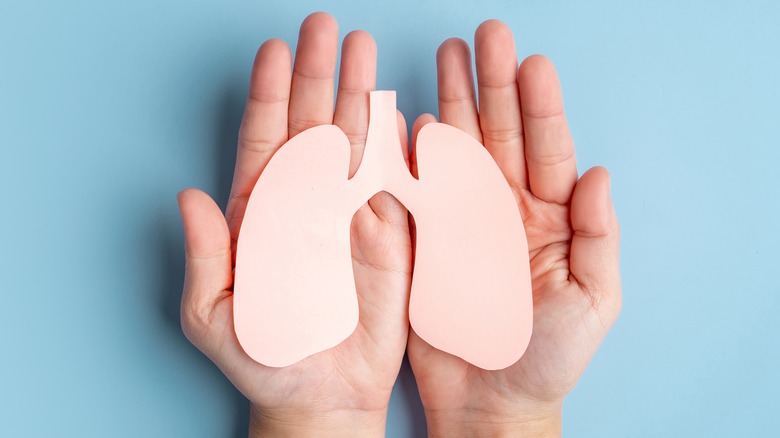How To Recognize Cystic Fibrosis Symptoms
Cystic fibrosis (CF) is a life-threatening hereditary disorder that affects the lungs and abdomen, per WebMD. Your stomach lining and air pathways naturally contain a thin, slippery layer of mucus that helps create a smooth transition of food and air. However, the mucus becomes thick and hard when you have cystic fibrosis. This interrupts the air passage by clogging the pathways and makes it difficult for you to breathe, explains WebMD.
According to the Cystic Fibrosis Foundation (CFF), the condition affects about 40,000 children in the U.S. Most of the cases are diagnosed in the early childhood years, typically around 2 years old. In addition, the CFF shares that around 1,000 new CF cases are reported yearly, and the majority of these individuals are older than 18 years. The National Health Service (NHS) reveals that while cystic fibrosis cannot be cured, certain medicines or therapeutic techniques can reduce or manage the worst symptoms. Changing the patient's diet and adding more nourishing supplements may help minimize the risk of infections.
Warning symptoms of cystic fibrosis
As per the NHS, there are several symptoms of cystic fibrosis that indicate the onset of the disease. The most common issue is difficulty breathing because of the thickly layered mucus clogging the air pathways. It's also common for people with CF to develop lung infections due to mucus development. Lung infections are highly dangerous and may cause the organs to stop working, warns the NHS. During infancy, CF can cause the child to grow slowly (via PennMedicine). It may be because CF affects the enzyme production needed for smooth digestion, resulting in a lack of nourishment. A baby with CF may be underweight and have difficulty with bowel movements, typically in the initial 2 days of birth.
Once you're an adult, CF may cause you to have greasy or loose stools, reports the Cleveland Clinic. This is usually because of the excess mucus in the system. Constipation or diarrhea are common symptoms of atypical cystic fibrosis. In addition, there may be constant wheezing and even a persistent cough if you have CF. PennMedicine also warns that cystic fibrosis may cause the belly to enlarge and seem bloated. Some people may experience nausea and not feel hungry.


